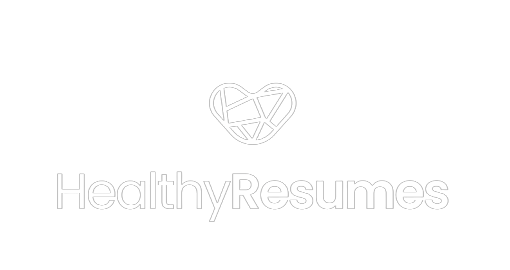Have you ever been in an interview for a job and the interviewer asks you something that sounds simple and easy but you know are actually hard interview questions?
You know… “the tell me about a time” question that the interviewer passes off as part of your real conversation?
I’ve been a recruiter for a decade and those hard interview questions definitely require a little extra understanding into what’s behind the question.
1. Why are you interested in working with XYZ Company?
This is usually the very first question you get asked in any interview. It seems simple and open ended.
It’s not. It’s one of those hard interview questions.
You’d be surprised to find out how many people I interview that don’t actually know what company or job they are interviewing for.
When I ask a candidate that question, I want to know that they truly want to work with my company. I try to understand their connection to the organization and if they have the compassion and dedication necessary to be in healthcare.
I want to know that you’ve done your research. I want to see that you sought out this job or you’ve even taken time to keyword your resume for my opening.
I’m not looking for you to recite every random detail about my hospital. I just want to know that you identify with certain important items like our culture, mission, or company goals.
Don’t just say “I need a job” or “I want day shift”. Even if those are true.
Tell me why you want to spend 40+ hours every week at this hospital taking care of these patients with this team.
Be specific! I love to hear personal connections to a brand or company.
2. Tell me about a time you had a disagreement with a coworker.
Talk about a tricky interview question!
When I ask people this, I don’t actually want to know about the details of your argument with a coworker or how the other person just didn’t get along with you or others.
I want to know what YOU did to fix the problem.
What steps did you take, on your own, to try and come to a solution with the other person.
Going to your manager to talk it out and have them help you is definitely okay to say. But I would be listening to hear that you tried to take action and compromise or solve the situation first before coming to the manager if it’s an option.
Tell me about how you tried talking things out or assisted in some way to move forward in a professional manner.
Then… tell me how you get along with the person after the argument and how you can continue working well with someone you might not get along with.
3. Have you ever been terminated from a position before?
First off, let me just say that just because you’ve been fired from a job doesn’t mean you are going to be blacklisted from another employer.
It’s okay to have been fired before.
But, you need to own up to it and then spin it well.
I’m looking for an honest answer when I ask this question. Don’t lie because recruiters will find out during the background check process.
If you made a mistake, were underperforming because of personal issues, or even had attendance issues… those are all learning experiences.
As the recruiter, I’m listening to hear you talk about what you’ve learned from the situation, how you’ve grown, and how it won’t happen again.
4. Where are you looking to be at in terms of salary?
This question is scary to so many people! You don’t want to devalue yourself and end up leaving money off the table.
Fortunately, in most states, companies can’t ask you what you make currently. They don’t know what you make before they make you an offer.
If you have a range you’re trying to stay within, just be honest!
If you’re over the range then the recruiter would let you know.
If you’re under the range, you may still end up with more just to make sure you are comparable to others in your new department based on skills and experience.
The easiest way to get around this question is to reply to the question with another question.
Just ask them what the range is that they are trying to stay within. If it’s okay with you, you can just say “that should work” or even “the top of that range should be okay.”
There are definitely companies out there that don’t work to make sure everyone is fairly paid.
But most will want to give you what you’re worth or they should be up front with you about it right away.
5. Do you have any questions for me?
I’m sure you’ve heard that you always need to be prepared with a question to ask at the end of the interview.
I have a lot of interviews that end without questions and that’s just fine for certain levels of positions. For more entry level roles, I’m not expecting tons of questions from my candidates.
The higher up you go, the more questions you should have.
However, I do want to say, be mindful of your audience.
I work in Human Resources as a Talent Acquisition Specialist and am not the CFO or Operations. I strive to know as much as I can about my organization, but there are some questions that are unnecessary to ask at this early stage in the game.
Of course, if you ask me a question and I don’t know the answer to it, I will find that answer for you later on.
But your goal is to ask questions about how you are going to fit in, how the position is going to work for you or vice versa, pay, benefits, schedule, etc.
I want to know you’re trying to find out if you are going to be happy with my organization. I’m not looking for you to quiz me on far out details that don’t pertain to you, me, or the job.
Don’t Let Hard Interview Questions Derail You
You are in control of the interview!
As long as you have an understanding that all of the hard interview questions a recruiter asks you are just trying to get under the skin to find out who you are and how you handle different situations.
Practice makes perfect… the more you answer these types of questions the better you’ll get at them.
Just try and remember that the recruiter is human too. They will understand different situations when you explain them a certain way.
As always, getting an interview can be the hardest part! Be sure your resume is up to date to answer any questions a recruiter may have before you even get a chance to talk to them.
What other hard interview questions do you need help answering?

